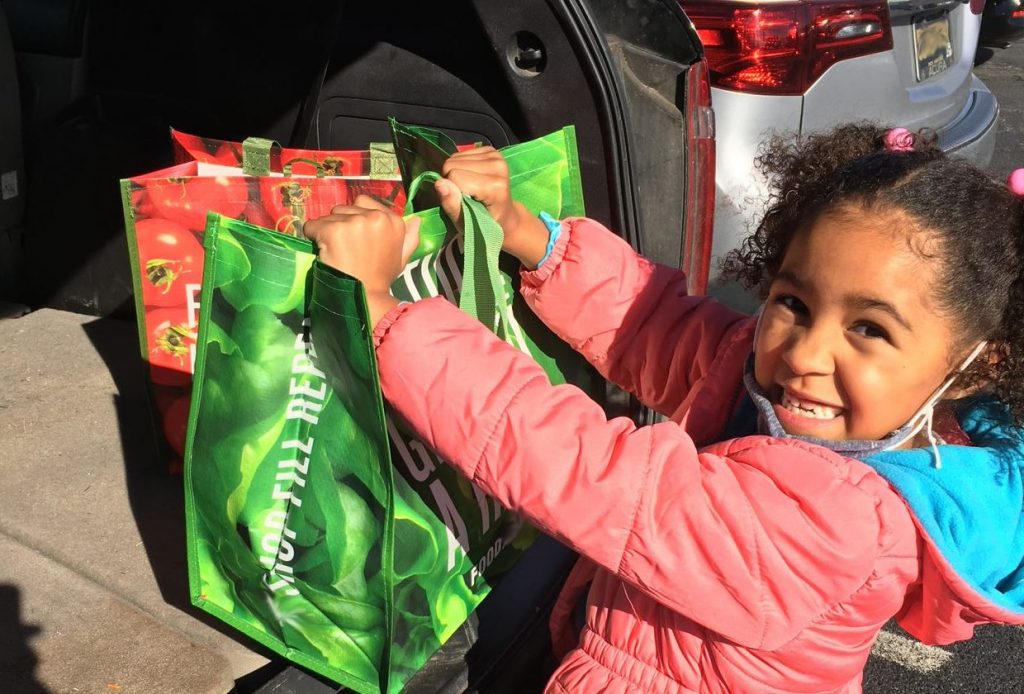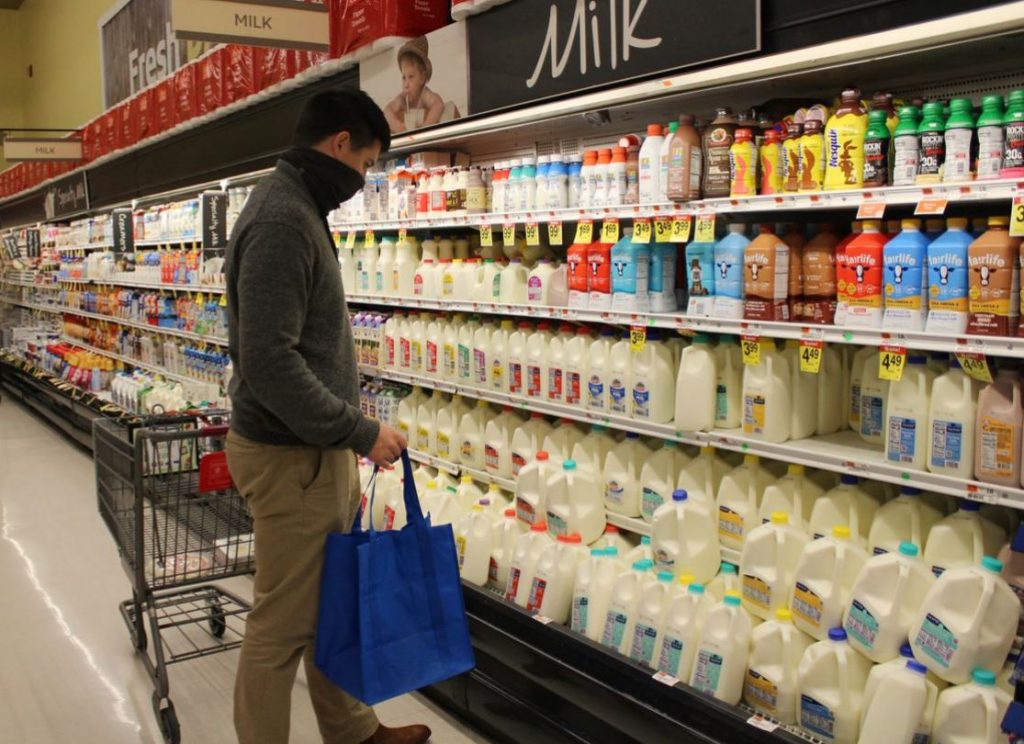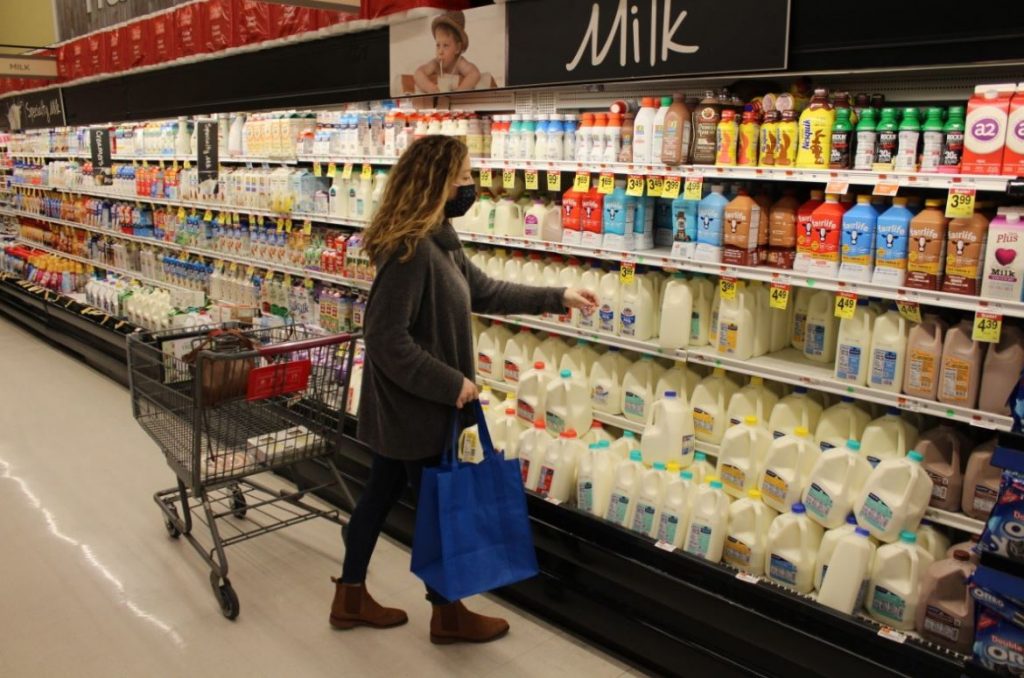By Adam Schlachter
 From now on, you won’t be able to use plastic carryout bags from many places like convenience, grocery or other retail stores. Most retailers won’t be distributing point-of-sale plastic carryout bags anymore.
From now on, you won’t be able to use plastic carryout bags from many places like convenience, grocery or other retail stores. Most retailers won’t be distributing point-of-sale plastic carryout bags anymore.
The easiest way to avoid missteps is to bring your own reusable bags to the store and make sure you clean and disinfect them between uses.
Delawareans use about 434 plastic bags, per person, and that means nearly 2,400 tons of plastic end up in our landfills every year. Decreasing this number can lower a big portion of this waste. It will also help our environment. When carryout plastic bags are not recycled, they can end up on our roadways, litter our waterways and woodlands, and harm the animals who live there.
Plastic carryout bags are also a problem for our recycling system. The bags wrap around the equipment and cause the recycling facility to be shut down while they are removed.

In 2019, the Delaware Department of Natural Resources and Environmental Control worked with the General Assembly, sponsored by 12 legislators, to pass the bill to put the ban in place. It was then signed by Gov. John Carney last year.
Depending on the store, you may be provided with cloth or paper bags, or a larger and thicker type of plastic bag designed to be reusable. The law allows retail stores to charge a fee for the bags they provide at point of sale, but does not require it.
DNREC advises consumers to wash or disinfect their reusable bags by turning them inside out and wiping them down with a disinfecting agent after each use.
Under the law, retail stores affected are generally large supermarkets and big-box stores, and chains of convenience stores. They are required to provide an At-Store Recycling program for plastic bags and some other plastic materials, like cereal box liners, newspaper sleeves and produce bags.
 The drop-off locations should be visible and accessible within the store. Bags that are no longer reusable or unwanted should be recycled according to the guidance provided at these locations. Plastic bags should not be placed in carts that are part of the state’s curbside recycling program. Instead, return them to stores for recycling.
The drop-off locations should be visible and accessible within the store. Bags that are no longer reusable or unwanted should be recycled according to the guidance provided at these locations. Plastic bags should not be placed in carts that are part of the state’s curbside recycling program. Instead, return them to stores for recycling.
Remember the most important information:
Here are some commonly asked questions and answers:
A: As defined by the Delaware General Assembly, a plastic carryout bag is one that is provided by a store to a customer at the point of sale made from plastic and is not specifically designed and manufactured to be reusable. There are some thicker plastic bags than the ones you are used to that are intended to be reusable and are acceptable under the new law. If you’re receiving a thicker plastic film bag at a store checkout now, that bag is intended to be reusable, and you can clean/disinfect it to use over and over again.
A: It will be up to the stores, but they could choose to provide paper bags, or cloth bags, or a thicker type of plastic bag that is designed to be reusable. Or stores could decide (as they always could have previously) not to provide bags to customers at all.
A: The new reusable bags that retail stores may be providing can be used for everything your old plastic carryout bags were used for. The only potential change you’ll see is the quantity of these bags on-hand, since due to their larger size, you should be taking less home. Similarly, not all retail stores are covered by this law, so there will be plastic carryout bags available from certain retailers within the state.
A: There may be several reasons. If the retail store is not affected by the law, they are not required to have an At-Store Recycling program. Similarly, if that retail store no longer provides plastic bags, including the exempt bags, they are not required to have a program to collect bags from consumers. If you’re concerned that a retail store should be participating, please contact DNREC at 302-739-9403 or recycle@delaware.gov, and an inspection of that store will be conducted.
For more FAQs and information, visit de.gov/bags.
Related Topics: bag, ban, carryout bags, conservation, education, plastic, retail